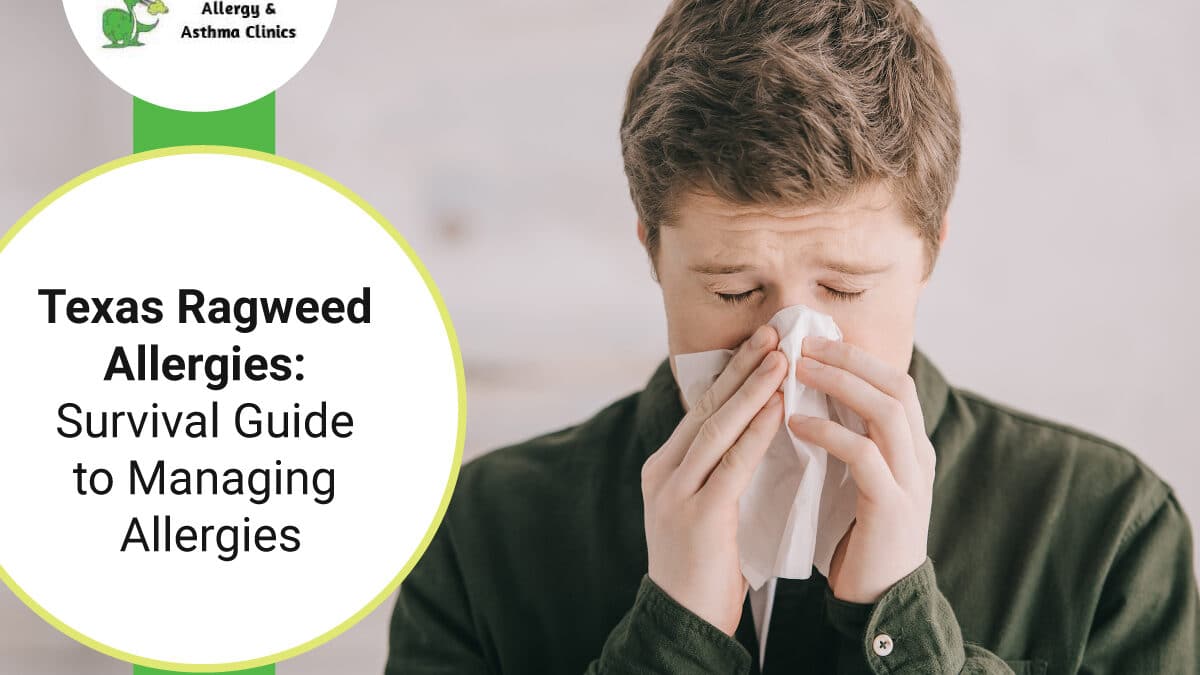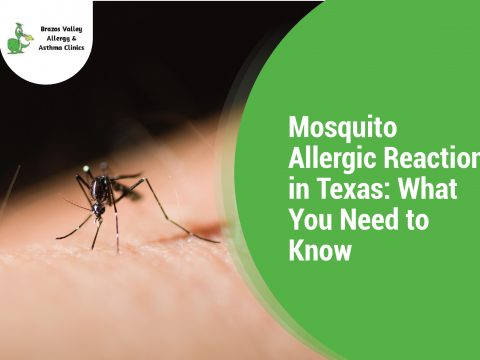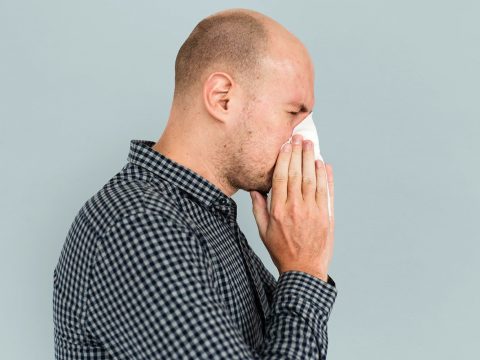- 979-485-9287
- office@bvallergy.com
-
 979-251-7804
979-251-7804
Texas Ragweed Allergies: Survival Guide to Managing Allergies

Allergic Conjunctivitis: Causes, Symptoms, and Triggers
August 29, 2023
Allergy Drops and Asthma: Managing Allergic Triggers
September 25, 2023How to Survive Texas Allergies
If you’re a Texan, chances are you’re no stranger to the relentless onslaught of Texas ragweed allergies. This native plant can turn a beautiful day into a sneezing, itchy-eyed ordeal.
But fear not, for in this comprehensive guide, we’ll equip you with the tools and knowledge to survive and thrive during ragweed season. Say goodbye to sneezing and itching—this cheat sheet on seasonal allergies in Texas has got you covered!
What is Ragweed Allergy?
Ragweed in Texas is notorious for causing allergic reactions during late summer and fall. It releases pollen that can travel through the air for miles, making it almost impossible to avoid. Ragweed allergies are triggered when your immune system mistakes ragweed pollen as harmful invaders, leading to various symptoms.
Identifying Ragweed Pollen
Recognizing ragweed is the first step to avoiding it. The plant has finely divided leaves and produces small, inconspicuous green flowers. Each plant can release billions of pollen grains into the air, causing widespread allergic reactions.
When Does Allergy Season in Texas Start?
Ragweed season in Texas typically begins in late summer, around August, and can last until the first frost. Knowing the timing is crucial for preparation.
Texas Ragweed Allergy Symptoms
Ranging from mild to severe, symptoms of ragweed allergies may include sneezing, runny or stuffy nose, itchy or watery eyes, coughing, and fatigue. For some, it can even exacerbate asthma symptoms.
How to Confirm Your Allergy
If you suspect you have ragweed allergies, consult an allergy specialist. They perform tests to confirm your allergy and identify specific triggers. One of the most common tests that allergists recommend is a skin test. The test involves exposing your skin to a diluted allergen for 15 minutes to check for an adverse reaction.
Over-the-Counter Allergy Medications
Over-the-counter antihistamines and decongestants can provide relief from mild symptoms. These medications help reduce sneezing, itching, and congestion.
Prescription Medications for Ragweed Allergies
In severe cases, prescription medications like corticosteroids and leukotriene modifiers may be necessary. Consult your doctor for personalized treatment options.
Natural Remedies for Relief
Some people prefer natural remedies such as honey, acupuncture, or herbal supplements to alleviate symptoms. While these can relieve some, they do not work for everyone. Talk to your allergist before trying home remedies for allergies.
Preventing Ragweed Exposure
To minimize exposure, keep windows closed during peak pollen times, use air purifiers, and shower after spending time outdoors. Regularly clean your home to remove pollen particles.
Ragweed Allergies and Asthma
People with asthma should be particularly cautious during ragweed season, as allergies can trigger asthma attacks. Ensure your asthma action plan is up-to-date. Click here to learn more about the link between allergies and asthma.
Managing Allergies in Children
The National Institutes of Health concluded that children also suffer from ragweed allergies. Consult a pediatrician for safe allergy management options tailored to their age.
Traveling During Ragweed Season
If you must travel during ragweed season, carry the necessary medications and research pollen levels at your destination. Be prepared for potential allergy triggers.
Dealing with Ragweed at Home
Maintain a ragweed-free home by keeping your yard clear of ragweed plants and using HEPA filters in your HVAC system. Vacuum and dust regularly. Moreover, always change your clothes when you get home. Ragweed pollen can cling to your clothes unseen since they are invisible to the naked eye.
Allergies and Diet: What to Eat and Avoid
Certain foods can either worsen or alleviate allergy symptoms. Explore an anti-inflammatory diet rich in antioxidants to boost your immune system. Visit this page for the full article about allergy food triggers and how to manage them.
Ragweed Allergy and Anaphylaxis
While rare, severe allergic reactions (anaphylaxis) to ragweed can be life-threatening. Seek medical attention as soon as possible if you experience any symptoms of anaphylaxis, such as breathing difficulties, rapid heartbeat, hives or rash, nausea or vomiting, or swelling of the face and throat. If you have a history of anaphylaxis, always carry an epinephrine auto-injector with you and know how to use it.
Remember: Time is crucial in saving the lives of individuals experiencing life-threatening situations due to severe allergic reactions.
A Ragweed-Free Future
Living with Texas ragweed allergies is manageable with the proper knowledge and precautions. By understanding Texas allergens, identifying symptoms, and exploring various treatment options, you can enjoy a more comfortable life during ragweed season. Don’t let Texas ragweed allergies hold you back from enjoying life to the fullest.
With the right strategies and treatments, you can manage your allergies and look forward to a future free from ragweed-induced discomfort. Remember, consulting an allergy expert is still your best bet against allergies. Allergy doctors can help treat and manage allergies safely and effectively.
FAQs
Q: Can I outgrow ragweed allergies?
While allergies can change over time, many people experience ragweed allergies. Consult an allergist for personalized guidance.
Q: Are there any permanent cures for ragweed allergies?
No permanent cure exists, but allergy shots (immunotherapy) can provide long-term relief by desensitizing your immune system.
Q: Can ragweed allergies lead to other health issues?
Unmanaged allergies can exacerbate asthma symptoms and lead to sinus infections. It’s crucial to seek treatment if you have ragweed allergies.
Q: Are natural remedies safe for ragweed allergies?
Home remedies can be helpful for some people, but it’s crucial to consult with an allergist for a comprehensive treatment plan.
Q: Can ragweed allergies be life-threatening?
While rare, severe allergic reactions (anaphylaxis) to ragweed can be life-threatening. Go to the ER if you experience breathing difficulties or inflammation of the face and throat.
Beat the Texas Allergy Season Like a Boss!
You are on the right page if you are searching for spring allergies in Texas, cedar allergies, Texas, pollen count, and September hay fever.
Allergies are frustrating, uncomfortable, and sometimes life-threatening. Although there is no permanent cure for allergies, effective treatment and management options exist. If your allergies cause significant lifestyle problems, the allergy experts at Brazos Valley Allergy & Asthma Clinics are here for you. We provide traditional and innovative treatments for ragweed allergies and similar conditions.
Our board-certified allergist, Dr. Paul Jantzi, offers accurate allergy testing to provide the appropriate treatment plan you deserve.
Feel free to request an appointment that suits your schedule by clicking here!




